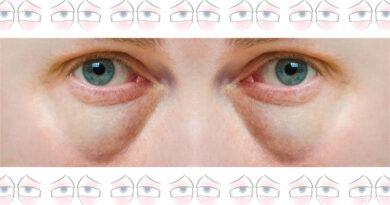Navigating Life’s Challenges: Revealing The 7 Stages Of Grief, Know It All Here
Throughout our lives, we are bound to face numerous challenges that can deeply impact us, leaving us grappling with a rollercoaster of emotions. When confronted with significant losses, betrayals, terminal diseases, or even failures in exams, it is common to experience a range of emotions that can be overwhelming.
There are five stages of grief, according to psychiatrist Elisabeth Kubler-Ross, MD (On Death and Dying, 1969):
- Denial
- Anger
- Bargaining
- Depression
- Acceptance
However, the later psychology experts’ models advocate two more stages, taking the total to seven. So now the seven-stage grief model is the most accepted model. This model consists of:
- Shock and denial
- Pain and guilt
- Anger and Bargaining
- Depression
- The Upward Turn
- Reconstruction and walking through
Understanding the seven stages of grief can help us make sense of these complex emotions and guide us towards healing and growth. In this article, I will explore each stage of grief and give examples related to death, betrayal, terminal disease, and failure in exams.
- Shock and Denial: The first stage of grief is when the person is shocked and denies that the event occurred. This is more of a protective mechanism that our mind activates so that we can cope with overwhelming emotions. This lessens the impact of the loss to a certain extent for some time.
Examples:
- Death: “They haven’t gone. They’ll be here any moment. Maybe it’s a fluke by the hospital.”
- Betrayal: “There must be some misunderstanding. They would never do this to me. It’s impossible.”
- Terminal Disease: “The doctors must be wrong. I feel fine. This can’t be happening to me. Maybe the report got mixed up with someone else.”
- Failure in Exams: “This can’t be my grade. I studied so much; it doesn’t make sense.”
Shock and denial work as temporary distractions. These lessen over time, and the individual transitions into other stages of grief.
- Pain and guilt: The affected would blame themselves and be intensely emotional. They will question their own actions or choices.
Examples:
- Death: “If only I had spent more time with them,” or “I should have taken them to the doctor earlier.”
- Betrayal: “I should have seen the warning signs,” or “It’s my fault for not trusting my intuition.”
- Terminal Disease: “If only I had taken better care of myself” or “I shouldn’t have ignored the doctor’s advice for regular checkups.”
- Failure in Exams: “I should have studied more,” or “I’m a dumb person who can’t grasp the concepts taught to me.”
It is important to have a support system like friends, family, or a therapist to work through these emotions. It also helps to realise that these emotions are bound to come and are a part of healing.
- Anger and bargaining: The individuals feel that they have been given the short end of the stick. They might feel helpless and might direct their anger towards themselves, the person who caused the betrayal, or even God, the universe, or any higher power. They would bargain with themselves, others, or even a higher power to reverse the loss, making promises or offering prayers.
Examples:
- Death: “Why did this happen to them? It’s not fair!” or “I’m so angry that they were taken away from us.” OR “Please bring them back, and I promise I’ll do anything,” or “If they could just have more time, I’ll dedicate my life to helping others.”
- Betrayal: “How could they do this to me? I’m furious!” or “I wish them to experience a horrible life and a gruesome death.” OR “If he would just apologise and promise never to do it again, maybe we can attempt to build our life together,” or “If he comes back to me, I would make sure to love him more.”
- Terminal b: “Why me? It’s not fair!” or “I’m so angry that my life is being cut short.” OR “If the doctor tells me that this can be cured, I’ll fast every Monday,” or “Please give me more time, and I’ll get regular checkups every year.”
- Failure in Exams: “I can’t believe I failed! I am so angry!” or “For this difficult exam, they should have considered giving extra marks.” OR “If I pass in revaluation, I will pay more attention in classes next year” or “If my teacher gives me extra credit for sports, I will pass, and I promise to offer 21 coconuts at the temple.”
Anger and bargaining are ways to express the frustration that comes with loss and helplessness. If the anger persists, it is important to consult a therapist.
- Depression and Loneliness: As the reality of the loss sets in, individuals may experience a deep sense of sadness, depression, and loneliness. This stage involves withdrawing from social activities and feeling disconnected from the world.
Examples:
- Death: “I don’t want to see anyone. I just want to be alone,” or “I feel so empty without them; it’s like a part of me is cut out of me.”
- Betrayal: “I can’t trust anyone” or “I feel so alone without anyone to rely on.”
- Terminal Disease: “I don’t want to burden anyone with my illness” or “The thought of what lies ahead makes me feel so depressed and isolated.”
- Failure in Exams: “I don’t feel like talking to anyone. I’m so ashamed of my failure” or “I feel so lonely in my studies. Everyone else has passed already.”
Although during this stage the individuals might feel lonely and want to be restricted to aloofness, it is at this time that they would need their friends and family the most. The individual should find a support system and consider consulting a therapist. In extreme cases, individuals may require psychiatric treatment.
- The Upward Turn: In the upward turn stage, individuals begin to accept the loss and gradually move towards healing. They may experience hope at times and start to engage in activities that bring them satisfaction and peace.
Examples:
- Death: The individual who has lost a loved one might begin an exercise regime to keep themselves fit. They might notice how the world has more to offer when observing the small joys of life.
- Betrayal: The individual who has been betrayed might start focusing on self-care and personal growth and might start to exercise, meditate, or cultivate hobbies they enjoy. They might start reconnecting with friends and rebuilding their trust in the world.
- Terminal Disease: The affected individuals start to think of ways to utilise the remaining time and might even turn towards spirituality to move on in peace. They might explore other options like alternative therapy or express themselves creatively through art, music, etc.
- Failure: The individuals make a plan for studying well next time or start to think of ways to explore additional avenues that might bring them closer to their ultimate goals.
The upward turn stage takes the individuals towards healing. They find positivity, hope, and growth amid the grieving process. Though they might still be experiencing pain, they start seeing the possibility of joy and satisfaction.
- Reconstruction and Working Through: During this stage, individuals actively work through their emotions and begin to reconstruct their lives. They may seek therapy, support groups, or other resources to help them navigate their grief.
Examples:
- Death: The affected individuals would start to find ways to keep the good memories of their loved ones alive. They might create a memorial or just volunteer for something that was important to the deceased. They could find joy in small things like making dishes their loved ones liked and distributing them to the needy.
- Betrayal: Individuals who have experienced betrayal may begin to rebuild their sense of trust and make meaning out of the betrayal they faced. They could look at the betrayal and try to find out the mistakes they made to avoid a recurrence. At the same time, they might explore options to rebuild their self-esteem and look to improve their communication skills further.
- Terminal Disease: The individuals might start working on a bucket list and start looking for ways in which they can leave a legacy. They might start working for the betterment of society by educating others on the disease they have, its avoidance, the need for regular check-ups, and ways of treatment and therapy.
The reconstruction and working through stage is a time of personal growth, self-reflection, and making choices that align with one’s values and goals.
- Acceptance and Hope: The final stage of grief involves reaching a place of acceptance and finding hope for the future. It does not mean that the pain completely disappears; rather, individuals develop the strength to move forward with their lives.
Examples:
- Death: The individual might start to focus more on cherished memories instead of the fact that the loved one is no longer with them. They might start looking for ways to carry on the legacy they left behind.
- Betrayal: The individual accepts that the betrayal happened but refuses to let it define their entire life. They might understand that there are people in the world who would not break their trust and might start to build relationships again. The resentment also fades, or they consciously decide to let it go.
- Terminal Disease: The individual might come to accept that their time is limited and shift their focus from seeking a cure to prioritising the quality of their remaining life. They may start spending time with loved ones, pursuing their passions, or travelling to places they’ve always wanted to visit.
The acceptance and hope stage involves recognising the reality of the loss or circumstances and finding a sense of peace, meaning, and possibility. It’s a stage of letting go of resistance and moving forward with a renewed sense of purpose, hope, and optimism for the future.
Conclusion:
The journey through grief is unique to each individual. These stages of grief do not occur in a certain sequence. It is possible that one or more of the stages repeat themselves after some time. Knowledge of the stages of grief gives us insight into dealing with complex emotions whenever we face loss in life. They can also make us more compassionate and supportive of others facing challenging times. We have to remember that everyone heals in their own time. Time gives hope in the end.




